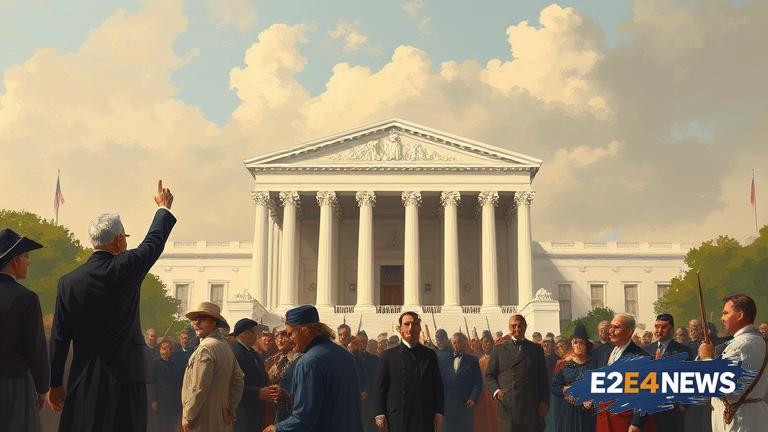The 14th Amendment, also known as the Reconstruction Amendment, was a pivotal moment in US history, aiming to establish citizenship and ensure equal protection for all individuals, regardless of their background or ethnicity. This amendment was ratified on July 9, 1868, and it has had a profound impact on the country’s development. The amendment’s adoption was a result of the tumultuous period following the Civil War, as the nation struggled to redefine itself and grant rights to formerly enslaved individuals. The 14th Amendment’s provisions have been instrumental in shaping the country’s civil rights landscape, influencing landmark Supreme Court decisions, and informing social justice movements. The amendment’s language, which guarantees citizenship to all persons born or naturalized in the United States, has been particularly significant in promoting equality and challenging discriminatory practices. Furthermore, the amendment’s equal protection clause has been used to combat segregation, disenfranchisement, and other forms of systemic inequality. The 14th Amendment’s impact extends beyond the realm of civil rights, as it has also played a crucial role in shaping the country’s federalism and the relationship between the federal government and the states. The amendment’s due process clause, which ensures that individuals are entitled to fair treatment and a fair trial, has been invoked in numerous cases to protect individual liberties and limit government overreach. In addition to its legal implications, the 14th Amendment has also had a profound cultural impact, as it has helped to redefine American identity and promote a more inclusive understanding of citizenship. The amendment’s adoption marked a significant shift in the nation’s values, as it acknowledged the inherent worth and dignity of all individuals, regardless of their background or circumstances. The 14th Amendment has been the subject of numerous Supreme Court cases, including Brown v. Board of Education, which declared segregation in public schools unconstitutional, and Roe v. Wade, which established a woman’s right to choose. The amendment’s provisions have also been used to challenge discriminatory laws and practices, such as Jim Crow laws and voter suppression tactics. Despite its significance, the 14th Amendment has not been without controversy, as some have argued that its provisions have been interpreted too broadly or that they have been used to undermine state sovereignty. Nevertheless, the 14th Amendment remains a cornerstone of American democracy, as it continues to shape the country’s understanding of citizenship, equality, and justice. The amendment’s legacy can be seen in the many social justice movements that have drawn upon its provisions, including the Civil Rights Movement, the Women’s Rights Movement, and the LGBTQ+ Rights Movement. As the United States continues to grapple with issues of inequality and injustice, the 14th Amendment remains a powerful tool for promoting equality and protecting individual rights. The amendment’s adoption serves as a reminder of the importance of constitutional governance and the need for ongoing efforts to perfect the union. In conclusion, the 14th Amendment’s adoption was a pivotal moment in US history, marking a significant shift in the nation’s understanding of citizenship, equality, and justice. Its provisions have had a profound impact on the country’s development, shaping the civil rights landscape, influencing Supreme Court decisions, and informing social justice movements. As the United States continues to evolve and grow, the 14th Amendment remains an essential component of American democracy, promoting equality, protecting individual rights, and ensuring that all individuals are treated with dignity and respect.





